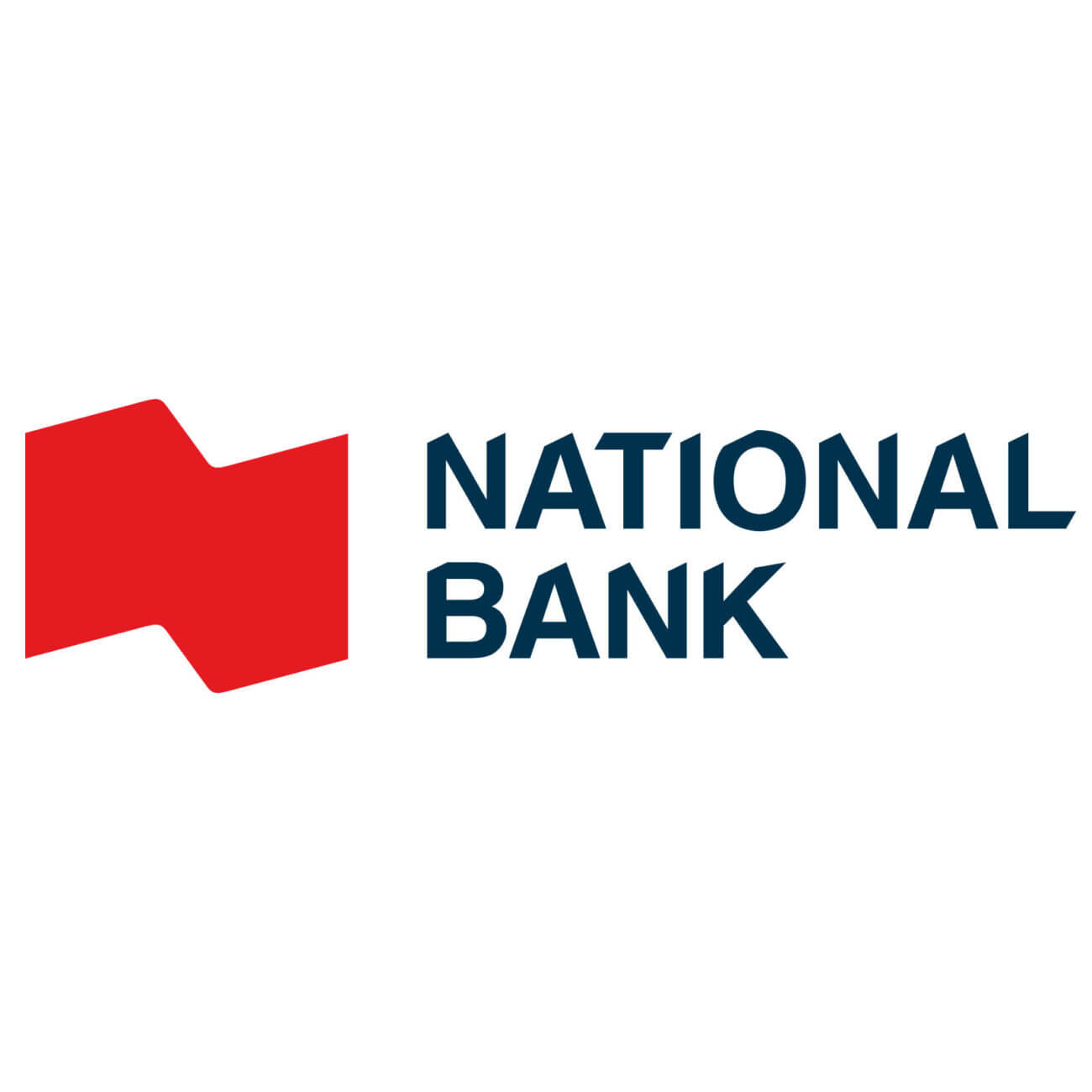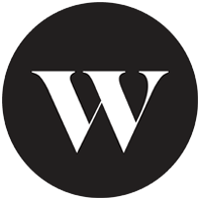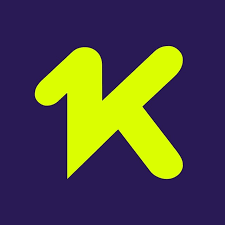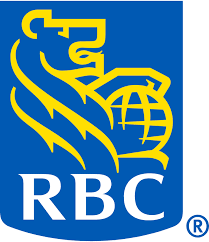Chequing accounts are used for everyday transactions, like bill payments and ATM withdrawals. But although most chequing accounts are known as a useful, if boring necessity, the best ones in Canada—like those on our list of award-winners—offer low or no fees, rewards on spending, high interest rates and plenty of other reasons to get excited.

Awarded Best Bank for Newcomers to Canada by MoneySense. No monthly fees for up to 3 years and $100 cash back when opening an account.

Unlimited transactions and no monthly fees. Plus eligible new account holders can earn up to $300.

Earn up to 3.50% interest on your savings. Plus, use the pre-paid Mastercard for everyday purchases and free ATM withdrawls.
The best chequing accounts in Canada
Click on an account to learn more about its features and pros and cons, including fees, transaction limits, rewards and other benefits.
| Category | Chequing account |
|---|---|
| Best overall chequing accounts | Wealthsimple Cash (Gold) EQ Bank Personal Account (Silver) PC Money Account (Bronze) |
| Best basic chequing accounts | Koho Essential (Gold) RBC Day to Day Banking (Silver) |
| Best premium chequing accounts | Scotiabank Ultimate Package (Gold) Koho Everything (Silver) |
| Best chequing accounts for newcomers | Simplii Financial No Fee Chequing Account (Gold) |
MoneySense is an award-winning magazine, helping Canadians navigate money matters since 1999. Our editorial team of trained journalists works closely with leading personal finance experts in Canada. To help you find the best financial products, we compare the offerings of major institutions, including banks, credit unions and card issuers. Learn more about our advertising and trusted partners.
Compare Canadian chequing accounts
Use our interactive tool to compare the features of top chequing accounts from major financial institutions across Canada.
Best overall chequing account in Canada
Gold: Wealthsimple Cash
At a glance: Wealthsimple Cash is the best chequing account in Canada, offering zero fees (including no monthly fee, foreign transaction fees or overdraft penalties) and one of the highest regular interest rates on your balance in Canada. Plus, this hybrid chequing/savings account is made with investors in mind, returning 1% back in cash, stock or crypto every time you spend with your Cash card.
Wealthsimple Cash
- Monthly fee: $0
- Transactions: Free, unlimited transactions
- Interest earned on balance: 1.75% to 2.75%
- Welcome offer: None at this time
- Earn 1% back in stock, crypto or cash
Pros
- High interest rate on balance: A minimum of 1.75% on all deposits in your account. Clients with $100,000 or more in assets with Wealthsimple and clients with $500,000 earn a respective 2.25% and 2.75% interest on their deposits, plus additional benefits.
- Deposit insurance: Get up to $1 million in Canada Deposit Insurance Corporation (CDIC) coverage. CDIC insurance typically only covers up to $100,000 in deposits.
- Additional interest: Earn 0.5% more interest (up to 2.75%) when you direct deposit more than $2,000 within a 30-day period.
- No forex fees: Save on the standard 2.5% foreign transaction fee on international purchases when using your Wealthsimple Cash card.
- Other perks: Get unlimited transactions, no charge on ATM withdrawals, and open up to eight Cash accounts (including joint accounts).
Cons
- Interest rates may vary: Wealthsimple’s interest rates are subject to change based on fluctuations in the Bank of Canada’s benchmark interest rate and other factors.
- No in-person branches: Wealthsimple doesn’t have any physical locations. Customer service can be reached by phone or email.
Silver: EQ Bank Personal Account
At a glance: The EQ Bank Personal Account combines high interest with unlimited transactions and no monthly fees, making it a strong choice for those who want to maximize convenience, keep costs low and earn interest on their balance. Considered a hybrid chequing/savings account, the Personal Account comes with a Mastercard debit card you can use at any ATM in Canada and anywhere that accepts Mastercard—for free.
EQ Bank Personal Account
- Monthly fee: $0
- Transactions: Free, unlimited transactions
- Interest earned on balance: Up to 3.50%
- Welcome offer: None at this time
- 0.50% cash back on Canadian purchases
- 0.50% on international purchases
Pros
- High interest rate on your balance: Set up recurring direct deposits of at least $2,000 per month and get 3.50% interest on money in your account.
- No ATM fees: Unlike accounts tied to a bank or network, the Personal Account eliminates all ATM fees. No matter which machine you use, EQ will reimburse the charges.
- Rewards: Use the Mastercard debit card and earn 0.5% cash back on domestic and international purchases.
- No forex fees: Save on the standard 2.5% foreign transaction fee when using your bank card.
- Have multiple accounts: Open up to eight accounts (including joint accounts).
Cons
- Slow bank-to-bank transfers: It may take several business days to complete bank-to-bank transfers.
- Maximum cumulative balance: You can only hold up to $250,000 in your account (up to $500,000 for joint account holders).
- No in-person branches: There are no physical locations for in-person service.
- Some banking features unavailable: A few standard features aren’t available, such as overdraft protection and the option to have paper statements.
Bronze: The PC Money Account
At a glance: The PC Money Account works like a prepaid Mastercard with unlimited transactions, no minimum balance, and no monthly fees or transaction charges. This account lets you earn PC Optimum points from everyday banking. Get rewards of up to 25 points per dollar on shopping and up to 10,000 bonus points per month for setting up payroll or pension direct deposit and paying bills. Plus, you can opt for the savings feature to earn 3.10% interest on your balance.
PC Money Account
- Monthly fee: $0
- Transactions: Free, unlimited transactions
- Regular interest rate on balance: 3.10%
- Welcome offer: None at this time.
- 25 PC Optimum points per $1 at Shoppers Drug Mart
- 10 points at Loblaw banner grocery stores
- 5 points on all other purchases
Pros
- High interest rate on savings: With the optional savings feature, you can earn 3.5% interest on your money (unavailable for Quebec residents). Transfer funds between your spending balance and savings balance with ease.
- Rewards: Get 25 points per dollar at Shoppers Drug Mart, 10 points at Loblaw banner stores and 5 points everywhere else.
- Bonus rewards: Earn up to 5,000 bonus points per month by setting up payroll or pension direct deposit and up to 5,000 points for bill payments.
Cons
- Forex fees: There’s a 2.5% fee on foreign currency transactions.
- ATM fees: Charges may apply on withdrawals from non-PC Financial ATMs.
- NSF fee: A non-refundable $40 charge is applied if a preauthorized transaction on your account is rejected due to non-sufficient funds (NSF).
- Inactivity fee: If your account is inactive for more than 365 days, you’ll be charged a fee of $20 or the amount of your account balance if it’s under $20. No fee will be charged if you don’t have a balance, but your account may be closed without further notice.
- Some banking features unavailable: A few standard chequing account features are unavailable like the ability to use cheques or to deposit cash or cheques at ATMs.
Best basic chequing account in Canada
Gold: Koho Essential
At a glance: Koho Essential offers seamless everyday banking with unlimited transactions and a chance to earn 2.5% interest on your balance. Enjoy 1% cash back on everyday spending like groceries and dining, plus up to 5% extra cash back at select partners. While there’s a $4 monthly fee, Koho will waive it as long as you make sufficient qualifying deposits. Plus, you can monitor your credit score for free and improve your credit history with the optional Credit Building add-on.
Koho Essential
- Monthly fee: $0 (with recurring deposit)
- Transactions: Free, unlimited transactions
- Regular interest rate on balance: 2.50%
- Welcome offer: None at this time.
- 1% cash back on groceries, transportation, food and drink
- Up to 5% at partner stores
Pros
- High interest rate on balance: Opt in for interest and earn 2.5% on everything in your spending and savings account. Earn a high interest rate on your savings.
- Rewards: Get 1% cash back on groceries, eating, drinking and transportation, and up to 5% back at select partners.
- Free credit score monitoring: Monitor your credit score for free. Plus, with the Credit Building add-on, you can build your credit history for a small fee.
- Monthly fee waived: The $4 fee is waived if you set up a qualifying recurring direct deposit or add at least $1,000 to your account each month.
- No NSF fees: There’s no charge if a transaction is rejected due to non-sufficient funds.
Cons
- Forex fee: You’ll be charged a 1.5% foreign transaction fee when making purchases in a foreign currency.
- No in-person branches: Koho doesn’t offer in-person assistance.
- E-transfer wait time: It can take up to 90 minutes for transfers to go through.
- Spending limit: There’s a daily spending limit of $4,000.
- ATM withdrawal limit: Only $600 can be withdrawn at a time.
Silver: RBC Day to Day Banking
At a glance: The RBC Day to Day Banking account offers rewards and savings perks, including earning Avion points on spending and saving on gas at Petro-Canada. The $4 monthly fee is rebated for RDSP beneficiaries and seniors, or can be rebated through the RBC Value Program (conditions apply). It comes with a limit of 12 free transactions per month. However, you get near-unlimited free e-transfers.
RBC Day to Day Banking
- Monthly fee: $0
- Transactions: Free, unlimited transactions
- Interest earned on balance: 0%
- Welcome offer: None at this time
- Rewards: None
Pros
- Free e-transfers: Get up to 999 free e-transfers per month. With other banks, e-transfers are typically considered part of the monthly transaction limit.
- Rewards: Enroll the account in the RBC Value Program and earn at least 1 Avion point per $10 spent.
- Gas savings: Save 3 cents per litre at Petro-Canada stations.
- Monthly fee rebate: The $4 monthly fee is rebated for RDSP beneficiaries and those 65 or older. Or enrol your account in the Value Program, hold multiple eligible RBC products and complete monthly activities to receive a partial or full rebate on the $4 monthly fee.
- Free international transfers: Pay no fee for international money transfers.
Cons
- Transaction limit: There are only 12 free transactions per month (excluding public transit and e-transfers), with a charge of $1.25 per transaction thereafter.
- Fees: Non-RBC ATM withdrawals are charged a fee. And overdraft protection is not included.
- No interest on balance: Unlike with some chequing accounts, you won’t earn interest on your money.
- No rebate for min balance: Unlike this account, many others eliminate the monthly fee for maintaining a minimum balance in the account.
Best premium chequing account in Canada
Gold: Scotiabank Ultimate Package
At a glance: With the Scotiabank Ultimate Package, you can bundle up on services to get a better deal. Earn Scene+ points on everyday expenses and purchases at Cineplex. Plus, get benefits like unlimited free global non-Scotiabank ABM withdrawals, a free safety deposit box, 10 free equity trades at Scotia iTrade in your first year, and much more.
Scotiabank Ultimate Package
- Monthly fee: $30.95
- Transactions: Free, unlimited transactions
- Interest earned on balance: None
- Welcome offer: Earn up to $500 when you open an account. Offer ends April 30, 2025.
- 1 Scene+ point per $1 spent at Cineplex
- 1 Scene+ point per $5 spent on all other purchases
Pros
- Get a premium account: Maintain $6,000 in your account to get a premium account with related perks for free.
- Free equity trades: Get 10 free Scotia iTrade transactions in the first year ($100 value), and five free trades every year after.
- Credit card fee waiver: Up to $150 ongoing annual fee waiver on select credit cards.
- Rewards: Earn 1 Scene+ point per $5 on everyday purchases and 1 point per $1 at Cineplex.
- Extra interest on savings: Earn an additional 0.1% on your MomentumPlus Savings Account.
- Better GIC rates: Get better rates on select GICs.
- Other perks: Get free overdraft protection, and no monthly account fee on a Basic Plus Bank Account or a Scotia U.S. Dollar Daily Interest Account.
Cons
- High monthly fee: There’s a $30.95 monthly fee if you don’t maintain a daily balance of $6,000 in your Ultimate Package, or a combined balance of $30,000 across your Ultimate Package and your MomentumPlus Savings Account.
- No interest on balance: You won’t earn any interest on your money.
- Fees and charges: Some services come with extra fees, like $2.25 charges per paper statement and charges for out-of-network ATM use.
Silver: Koho Everything
At a glance: The Koho Everything is a premium account that combines cash back rewards with high-interest earnings, making it a versatile choice for everyday spending and saving. Earn up to 2% back on your everyday purchases and up to 5% back at selected merchants. Enjoy 4% interest on your entire balance, the highest rate Koho offers, with no minimum account balance required. For $19 per month, you’ll also get perks like no foreign transaction fees and discounted access to Koho’s Credit Building feature.
Koho Everything
- Monthly fee: $14.75 (when billed annually)
- Transactions: Free, unlimited transactions
- Regular interest rate on balance: 4.00%
- Welcome offer: None at this time
- 2% back on groceries, transportation, food and drink
Up to 5% at partner stores - 0.50% on all other purchases
Pros
- High interest rate on balance: Earn 4% on your entire balance, with no minimum balance required.
- Rewards: Get 2% cash back on groceries, transportation, food and drinks, 0.5% on everything else, and up to 5% at selected partners.
- No forex fees: Save on the standard 2.5% foreign transaction fee on international purchases.
- Koho eSIM included: Get a Koho eSIM with your plan, plus up to 3GB of monthly data.
- Credit-building and insurance option: Report rent payments and build your credit score, or enroll in travel insurance (additional cost applies).
- Low monthly fee: The $19 monthly fee is lower than typical premium bank accounts.
Cons
- No monthly fee waiver: Unlike some premium accounts, you cannot avoid the monthly fee by maintaining a minimum balance.
- No in-person branches: Koho operates entirely online, with no physical locations for customer service.
Best chequing account for newcomers
Gold: Simplii Financial No Fee Chequing Account
At a glance: The Simplii Financial No Fee Chequing Account is the best account for newcomers to Canada, offering a fee-free banking experience with unlimited transactions and no minimum balance requirements. Newcomers can apply for the New to Canada Banking Program and get rewards and perks catering to newcomers. While the account itself doesn’t have any newcomer-specific offers, it is still the best option for new immigrants in Canada.
Simplii Financial No Fee Chequing Account
- Monthly fee: $0
- Transactions: Free, unlimited transactions
- Interest earned on balance: 0.01%
- Welcome offer: Earn $300 when you become a new client, open a No Fee Chequing Account and make an eligible direct deposit of at least $100 a month for three straight months. Offer ends October 31, 2025.
- Rewards: None
Pros
- New to Canada Banking Program: Apply for the program up to 12 months before arriving in Canada, or up to 5 years after, to receive newcomer-specific benefits.
- Free international transfers: Use Simplii’s Global Money Transfer tool to send money internationally for free, with no deductions.
- Easy digital banking: Simplii’s website and mobile app are easy to use, offering 24/7 access to your account and banking services.
- Free ATM access: Use any CIBC ATM across Canada for free.
Cons
- Overdraft fees: If your account goes into overdraft, you’ll be charged $4.97 plus 19% interest on the overdrawn amount.
- Low interest rates: Earn only 0.01% on balances up to $50,000 and 0.1% on amounts above $100,000.
- Non-CIBC ATM fees: Using a non-CIBC ATM may cost up to $3 per transaction.
- No in-person branches: Simplii operates entirely online, meaning there are no physical locations for in-person assistance.
Our approach to picking the top accounts
The MoneySense editorial team selects the best chequing accounts by assessing the value they provide to Canadians across various categories. Our evaluation is based on an extensive list of account details and features, including fees, service charges, number of transactions and cheques, ATM access and welcome offers. Our rankings are an unbiased source of information for Canadians. The addition of links from affiliate partners has no bearing on the results. Read more about how MoneySense makes money.
Frequently asked questions
Some chequing accounts do earn interest, especially at online banks and credit unions. It’s rare, however, and the interest rate is almost always lower than that of a savings account.
Yes, you likely need a chequing account, both to earn money and pay bills. Most landlords and mortgage lenders don’t accept cash, so you would need a chequing account to pay for housing. And legitimate employers and the Canada Revenue Agency (CRA) will either write a cheque or do a direct deposit into your chequing account to pay wages or distribute government benefits.
Guide to Canadian chequing accounts
We break down everything you need to know about chequing accounts in Canada.
How to use a chequing account
Most Canadians open up a savings account when they’re young, to stash away allowances and birthday money. As they get older, however, banking needs change and they require something that allows them to move money in and out of their account easily. Often savings accounts will have higher interest rates and fewer free transactions while chequing accounts accrue less interest but have more free transactions, allowing them to use their chequing account as the main hub of activity for finances.
For your chequing account, you may choose to have one that allows recurring payments, such as phone and utility bills, to come out of your account. You may also want to have repeat deposits, such as payroll and GST rebates, set up to go into your account. When you look at your monthly cash withdrawals from ATMs, Interac e-Transfers and cheque deposits, the transactions can really add up, hence why having a large number of free transactions (or unlimited transactions) can be advantageous. Most people have at least two accounts (say, a savings and a chequing account), so they can reap the rewards of high interest as well as flexibility with multiple transactions.
How to choose the right chequing account
Given that nearly Canadian needs a chequing account, regardless of income level and financial goals, financial institutions offer a huge range of options. Different people use their accounts in different ways, so it’s important to consider what your individual needs are. If you will never write cheques, for example, then you shouldn’t pay monthly service fees on an account that includes them. We’ve broken down the various aspects you should consider before signing up for an account.
Fees
- Banks have traditionally charged monthly service fees for chequing accounts. Higher fee accounts generally include more features, while lower-fee accounts offer those same services on a pay-per-use basis. With the advent of online-only banking services that don’t have to cover the costs of operating physical branches, some banks pass on those savings by offering no-fee chequing accounts. Many of these no-fee accounts even come with great features like unlimited transactions. If you don’t need to do your banking in person, these options are worth looking into.
Features
- Interac e-Transfers allow you to send money easily to anyone with an email address or cell number. Some chequing accounts provide these transfers for free; others allow you to receive them for free, but charge a fee to send them.
- Transactions generally include debit purchases, deposits, withdrawals, bill payments and transfers. You’ll want to consider whether there are charges for transactions after you’ve made a certain number per month.
- Some banks may offer loyalty debit cards that accrue rewards for programs like Scene+, Air Miles or PC Optimum.
Accessibility
- Banks with more ATMs will provide easier access to cash withdrawals or ATM transactions. Note that using ATMs outside your own bank’s network usually results in additional fees.
- Branch access may be important for people who prefer to conduct banking in person or need assistance with transactions.
- Access to foreign currency may be important to newcomers, frequent travellers or those who do business abroad. Some banks also provide foreign currency or borderless accounts, which offer favourable exchange rates.
Promotions
- Student accounts are usually no-fee accounts with no transaction limits.
- Seniors can often qualify for discounts on existing accounts or low-fee senior accounts.
- Small-business owners can find business accounts that cater to their needs.
- Banks are always looking to lure new customers. Look for cash signing bonuses or giveaways such as TVs or iPads.
Types of chequing accounts
There’s a wide range of chequing accounts, each with their own features. Here we look at some of the most common ones.
A personal chequing account is held by one person. This is likely the most common kind of chequing account. You can have any variety of personal chequing account, such as online only, hybrid, student, no-fee etc. Its features will depend on your bank and the package you choose.
An online-only chequing account doesn’t offer any in-person services. The major benefit is that since the providers save on overhead, they can offer their accounts with low or no fees. As technology has evolved you will likely find an online-only account can easily meet your needs. You can deposit a paper cheque through your phone app, take out cash through an ATM (for example, Simplii customers have access to CIBC’s ATM network, and Tangerine’s customers can use Scotiabank machines), sign up for direct deposit with your employer and pay bills with a few clicks of a button.
A hybrid account is an option at some newer financial institutions. It combines elements of a savings account and a chequing account. Hybrid accounts usually pay high interest compared to chequing accounts, while also allowing you to complete daily transactions. They are a great option if you are trying to simplify your life, as long as you are disciplined enough to not spend the “savings” portion of your money. Depending on the account, you may also only have limited access to ATMs and cash withdrawals.
Joint chequing accounts are held by two or more people, who each have full access to the account and its privileges. Typically held between spouses, or a parent and child, these accounts are great when you are trying to combine funds or pay household bills. You can hold both a personal and a joint chequing account.
A student chequing account is an option at some banks. Students receive a discount on account fees as long as they are enrolled in a post-secondary institution. Some banks offer promotions like cash or gift cards to encourage students to open an account, as they know many Canadians stick with the same banks or financial institutions throughout their lives.
Some banks have started offering accounts designed specifically for newcomers to Canada. These accounts often offer reduced fees for a limited time, provide services in a variety of languages, and boast some free high-value perks, such as international wire transfers. Like with student accounts, you will often receive a promotional offer for opening this kind of account.
Many Canadians earn income in U.S. currency, live in the U.S. for part of the year, invest in American stocks or like to do cross-border shopping. Having a USD account makes all these options much easier. Many financial institutions offer USD chequing accounts where you can withdraw and deposit U.S. dollars.
Canada used to have limited competition for banks, which meant consumers paid high prices in monthly fees—and many still do. But now there are plenty of no-fee or low-fee chequing account options, some of which give you unlimited transactions without a monthly fee; others come with certain restrictions, such as fewer monthly transactions. No-fee chequing accounts are often offered by online-only banks, so if you’re comfortable receiving service over phone or chat, you could save hundreds of dollars per year.
How to close a chequing account
Closing a chequing account is simple. But before you do that, it’s best practice to open a new chequing account. First, transfer any funds in your old chequing account, or set up an online link between the accounts. You can also get your old bank to transfer your balance to another institution but they may charge a fee.
Next, set up all your pre-authorized deposits and withdrawals, including government benefits, employment paycheques or mortgage payments. The last thing you want is to be dinged with an exorbitant non-sufficient funds (NSF) fee or miss out on wages.
Finally, contact your bank, either by phone or in-person at a local branch, and inform them that you want to close the account. It should only take a few minutes to do.
Chequing vs. savings vs. hybrid accounts
A chequing account is meant for transactions, while a savings account is meant for accumulating funds. With a chequing account you can pay bills, accept deposits, withdraw cash or make purchases with your debit card. You rarely earn interest with a chequing account.
In contrast, a savings account is meant for stashing away money to pay for short or long-term goals, such as a car, vacation or a down payment. You always earn interest in a savings account—though the interest rate can be modest, depending on the account.
Some newer Canadian financial institutions now offer a hybrid account, which give you both the transactional features of a chequing account with the high interest of a savings account.
| Chequing | Savings | Hybrid |
|---|---|---|
| May charge a monthly fee | Often free | Often free |
| Rarely pays interest | Pays interest | Pays interest |
| Multiple features available like bill payments, automated transfers, e-Transfers, deposits and withdrawals, debit card purchases, cash withdrawals | Limited features, usually just transfers to and from a chequing account, debit card purchases and cash withdrawal | Features of a chequing account and savings account |
| Designed for daily transactions | Designed to accumulate funds | Designed for both transactions and accumulation |




